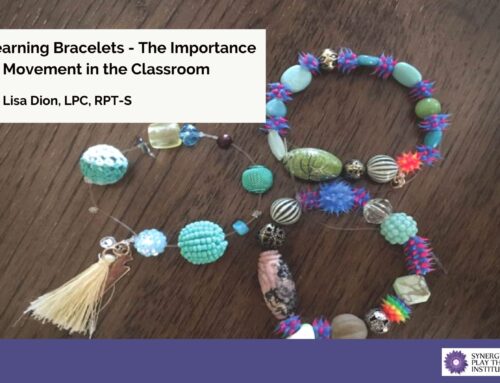By Lisa Dion, LPC, RPT-S
The end of the school year is an exciting time for kids – no more teachers, no more tests, no more learning about the Wild West. But not every child jumps for joy as they rush from the hallways into the arms of freedom. Some have mixed emotions: they’re glad and sad all at once.
This is often most prevalent in children who are on the brink of big changes – they’re leaving elementary school to go to middle school, they’re leaving middle school to go to high school, or they’re graduating altogether. It also shows up when children realize that there will be no more sitting next to their best friend at lunch and no more getting to play with their pals at recess. It shows up when they have to let go of their favorite teacher. It’s under these circumstances that things may rapidly turn, going from “school’s out for summer” to “school’s out…. bummer.”
Ending are hard for most people, kids included. And along with the goodbyes comes a handful of emotions and behaviors! Parents may find themselves scratching their heads thinking, “Why isn’t my child excited that school’s over?” or “Why is my child acting out – they don’t have homework, they get to sleep in, what is going on?”
So, how do you help your child close one chapter and start another? How do you help them say goodbye to the places they know and hello to the places they’ll go?
First, keep in mind that some children run headfirst towards change: your child might be so excited for what comes next that they’ll practically sing the “So Long, Farewell” song from the Sound of Music as they run down the school’s steps for the last time. If they do, relish in their excitement.
But, if your kid is a little hesitant, experiencing a hard time with finality, or acting out now that freedom has set in, consider the following:
Let them feel their feelings: Change elicits a lot – sad tears, happy tears, fears, and cheers. While you might be inclined to speak only of the positive, be careful not to minimize how your child truly feels. Doing this may make them assume their feelings are incorrect, and that can lead them to ignore their emotions altogether.
Create a memory map: A memory map is anything that takes your child back to the moments they’re longing for. You can create a map by putting together a scrapbook – pictures of teachers or friends or that cool mural inside the gymnasium. If your child is older, consider scrapping the scrapbook for something more technical – a video collage, for instance.
Set a routine: Routines offer comfort to many people. Your kid may find that a routine provides them with the security they seek – it makes the unknown known by telling the child what to expect. This doesn’t mean your routine needs to be entirely rigid, but guidelines surrounding chores, outdoor activities, and television may help your son or daughter adapt. And once kids adapt, many of them thrive.
Plan playdates: When a child leaves school, it’s natural for them to miss their teachers or classes or inanimate objects – your kid may miss their desk or the vending machine that always gave them two candy bars when they only paid for one. Still, what most truly miss are their friends. That’s why planning playdates can soften the pain change brings. Make it a point to set up regular friend-fests!
Find out what you can about the upcoming year: Your son or daughter is moving to a new grade (and maybe a new school) – this is scary because, as mentioned above, it involves the great unknown (which, to kids, is really the “not-so-great” unknown). You can reduce their fears by learning what’s on the horizon. Find out who their teacher will be and get their class schedule. You may even take your child on a school tour, walking the hallways with them as they acclimate to their new surroundings.
Change is a constant in life – as a parent, you already know this. You know it’s an inevitability, up there with growing old and missing socks. Children learn this too – time marches on. Help them march on as well by acknowledging their feelings (the good, the bad, and the mad), creating a predictable routine in the interim summer months, and explaining the future. Kids, like all of us, can better accept when they know what to expect.
We don’t have all the answers to parenthood, but we have some. Check out our Online Parenting Class – Managing Your Child’s Moods and Behaviors. Buy now for 40 dollars off!






